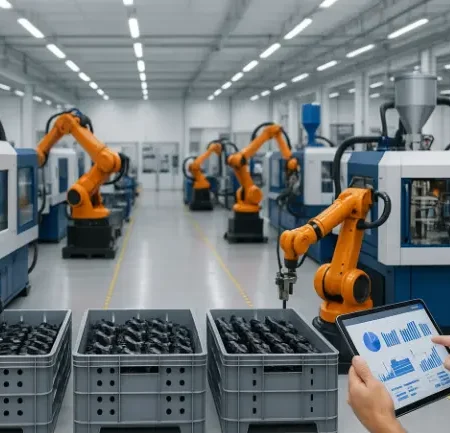Scaling production isn’t just about increasing volume—it’s about maintaining quality, consistency, and speed while minimizing risk. For OEMs working with plastic overmolding companies, this means finding a partner that understands not only the technical aspects of overmolding but also how to align with your evolving production needs.
From tooling strategies and automation to supply chain coordination, here’s how you can scale effectively with the right overmolding supplier.
Start with Scalable Mold Design
Production scalability starts at the tooling stage. Your initial mold design must allow for easy modifications, multi-cavity expansion, or faster cycle times as demand increases. This is why it’s important to work with a custom mold manufacturer who can design for long-term scalability—not just for a prototype run.
A scalable mold includes considerations like:
- Mold base compatibility with other inserts
- Multi-cavity setups for increased throughput
- Interchangeable core inserts to support product variants
- Cooling and ejection systems designed for high-speed runs
When selecting a supplier, ask about their approach to progressive tooling and whether they can offer modular designs that grow with your production volume.
Align on Automation Early
Manual processes may be sufficient for small batches, but they’ll limit your ability to grow. OEMs planning to scale must work with suppliers who are capable of—and ideally experienced in—automating the overmolding process.
Look for:
- Robotic insert loading for precision and speed
- Automated part removal and inspection
- Real-time process monitoring and control
These systems not only reduce cycle time but also ensure consistency across thousands—or millions—of units. Your supplier should be able to demonstrate how their automation improves yield and maintains quality at scale.
Material Planning and Procurement
Scaling production also means scaling your supply chain. Your overmolding supplier must have a robust material sourcing process to avoid delays or shortages. This includes relationships with resin suppliers, clear lead time planning, and alternate sourcing strategies when needed.
Confirm that the supplier can handle high-volume material procurement without compromising on material grade, color matching, or regulatory compliance (especially for industries like medical, automotive, or electronics). A scalable partner will manage procurement proactively and help you forecast inventory based on your growth plans.
Quality Systems that Grow with You
As you scale, minor variations can quickly become major quality issues. Choose a supplier with mature quality systems that support scalable output—this includes first article inspections (FAI), statistical process control (SPC), and in-line quality checks.
Ask about:
- Documentation standards and traceability
- Calibration schedules for molding and inspection equipment
- Reporting tools to flag production anomalies in real-time
Your quality expectations must remain constant whether you’re producing 10,000 units or 500,000. A supplier that invests in quality control systems can protect your brand as production ramps up.
Global Logistics and Fulfillment Support
Scaling production often means scaling across borders. If your products are assembled or distributed globally, your overmolding supplier must be equipped to handle export compliance, international shipping, and possibly warehousing near your key markets.
Some suppliers even offer drop-shipping or third-party logistics (3PL) integration. This level of service reduces your internal load and simplifies scaling into new markets.
Partner with a Long-Term Mindset
An OEM-friendly supplier won’t just fulfill orders—they’ll think ahead with you. They should offer engineering guidance during product iterations, tooling upgrades, and production transitions. Whether you’re adding SKUs, entering new markets, or switching materials, your supplier should be ready to support—not slow you down.
A true partner will provide detailed reporting, reliable communication, and the flexibility to adapt as your business grows. Choosing the right one early in the process can save you time, cost, and rework down the line.
Also READ-Cart Names: Creative Ideas for Naming Your Shopping Cart


Comments